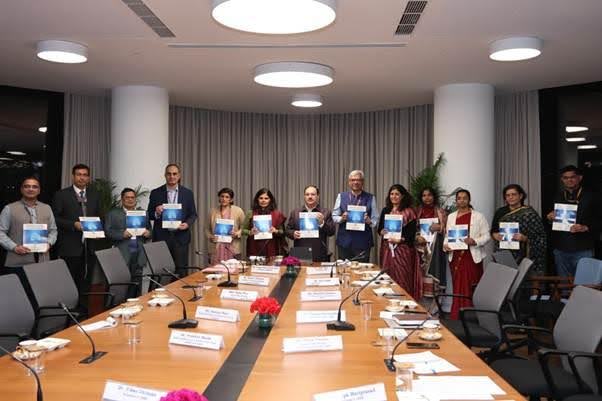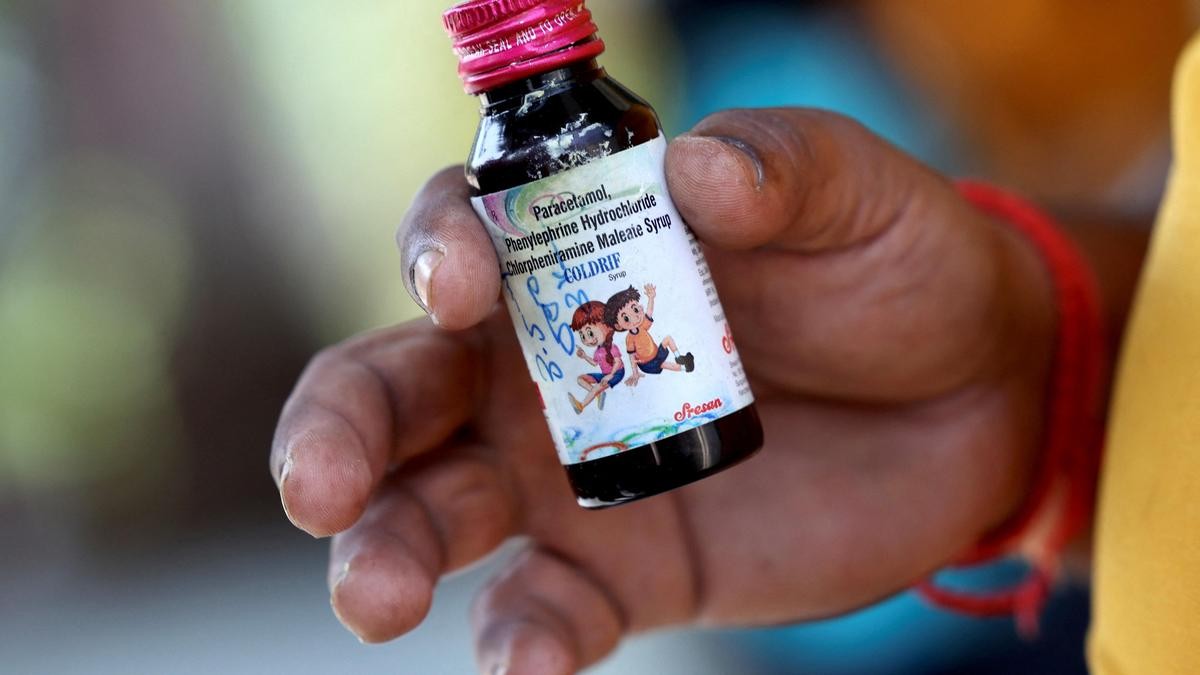
Disclaimer: Copyright infringement not intended.
Context:
- India's Central Drugs Standard Control Organisation (CDSCO) has issued an order permitting the waiver of local clinical trials
- It is for specific new and novel drugs already approved by regulators in countries with stringent quality control standards.
Details:
- In a significant move aimed at expediting access to new medications, India has decided to waive off local clinical trials for drugs that are globally approved.
- This decision has far-reaching implications for the healthcare sector, pharmaceutical industry, and patient care in India.
Background:
- The Central Drugs Standard Control Organization (CDSCO) has identified certain conditions under which new drugs that have been approved by stringent regulatory authorities (like the US FDA or EMA) can bypass local clinical trials.
- The primary goal is to provide faster access to essential medications, especially those required to treat life-threatening conditions and rare diseases.
The Central Drugs Standard Control Organization (CDSCO) is the Central Drug Authority for discharging functions assigned to the Central Government under the Drugs and Cosmetics Act. CDSCO has six zonal offices, four sub-zonal offices, 13 port offices and seven laboratories under its control.
Major functions of CDSCO:
Regulatory control over the import of drugs, approval of new drugs and clinical trials, meetings of Drugs Consultative Committee (DCC) and Drugs Technical Advisory Board (DTAB), approval of certain licenses as Central License Approving Authority is exercised by the CDSCO headquarters.
Key Points:
- Emergency Use and Rare Diseases: The policy is particularly relevant for drugs designed to treat rare diseases or conditions where no alternative therapy exists.
- Regulatory Confidence: The waiver applies to drugs that have already undergone rigorous testing and approval processes by established international regulatory bodies.
About Clinical Trials:
- Clinical trials involve enrolling participants who meet specific criteria to test the safety and efficacy of drugs, medical devices, or procedures.
- In India, the Indian Council of Medical Research (ICMR) oversees the Clinical Trials Registry-India (CTRI), a free online public-record system for registering clinical trials.
- Launched in 2007 on a voluntary basis, it became mandatory for all trials to register with the Drug Controller General of India (DCGI) in 2009.
What are the Potential Benefits?
- Faster Access to Medications: One of the most significant advantages is the rapid availability of life-saving medications to patients.
-
- In urgent cases, every day counts, and local trials can delay the process considerably.
- Cost Efficiency: Conducting clinical trials is resource-intensive, involving significant expenditure.
-
- By waiving local trials, costs can be reduced, potentially lowering the overall price of the drug.
- Encouraging Innovation: This move may attract global pharmaceutical companies to the Indian market, fostering a conducive environment for innovation.
-
- It could lead to quicker introduction of new therapies and advanced treatment options.
- Improved Healthcare Outcomes: Faster access to new drugs can improve healthcare outcomes, particularly in cases of diseases that are hard to treat with existing medications.
What are the Challenges associated with Waiver offers?
- Safety and Efficacy: The primary concern is ensuring that the drugs are safe for the Indian population. Genetic, dietary, and environmental differences can influence drug efficacy and safety.
-
- Thus, careful consideration is necessary to ensure that globally approved drugs are suitable for local use.
- Regulatory Vigilance: Continuous monitoring and post-marketing surveillance are essential to track the drugs' performance in the Indian population.
-
- Adverse effects or new safety issues need to be promptly addressed.
- Ethical Considerations: The waiver raises ethical questions about patient rights and informed consent.
-
- Ensuring transparency and patient awareness regarding the drugs they are being prescribed is imperative.
- Dependency on Foreign Approvals: Over-reliance on foreign regulatory approvals may weaken local regulatory standards over time.
-
- Strengthening the CDSCO's capabilities should remain a priority.
Conclusion
- India's decision to waive off local clinical trials for globally approved new drugs is a progressive step towards enhancing healthcare access and outcomes.
- The policy presents numerous advantages, particularly in terms of speed, cost, and innovation, it must be implemented with stringent safeguards to address safety and ethical concerns.
- A balanced approach that leverages global advancements while ensuring local relevance and patient safety is crucial for the long-term success of this initiative.
DRUGS CONTROLLER GENERAL OF INDIA (DCGI)
Drugs Controller General of India (DCGI) is the head of department of the Central Drugs Standard Control Organization of the Government of India responsible for approval of licences of specified categories of drugs such as blood and blood products, IV fluids, vaccines, and sera in India. Drugs Controller General of India, comes under the Ministry of Family and Health Welfare. DCGI also sets standards for manufacturing, sales, import, and distribution of drugs in India.
PHARMACOVIGILANCE PROGRAMME OF INDIA (PVPI)
The Pharmacovigilance Programme of India (PvPI) is an Indian government organization that identifies and responds to drug safety problems. Its activities include receiving reports of adverse drug events and taking necessary action to remedy problems. The Central Drugs Standard Control Organisation established the program in July 2010 with All India Institute of Medical Sciences, New Delhi as the National Coordination Centre, which later shifted to Indian Pharmacopoeia Commission in Ghaziabad on 15 April 2011.
GET DETAILED ANALYSIS ABOUT COMMON DRUG STANDARDS HERE- https://www.iasgyan.in/sansad-tv-air-summaries/perspectivecommon-drug-standards
Reference
https://www.hindustantimes.com/health/health-talk-why-india-waiving-off-local-clinical-trials-for-globally-approved-new-drugs-is-good-news-101723302179188.html#:~:text=The%20national%20regulator%20has%20identified,waiver%20to%20CDSCO%20in%20India.
https://www.business-standard.com/article/economy-policy/unified-national-portal-for-drug-regulatory-functions-in-the-works-123030800699_1.html
https://www.hindustantimes.com/india-news/govt-plans-common-drugs-standards-for-all-state-regulators-101678990617259.html
https://www.moneycontrol.com/news/trends/health-trends/all-you-need-to-know-about-drug-regulatory-framework-in-india-and-process-of-drug-approval-8715431.html
https://cdsco.gov.in/opencms/opencms/en/
|
PRACTICE QUESTION
Q. What are the implications of India's decision to waive local clinical trials for globally approved new drugs? Discuss the potential benefits and challenges this policy poses for the Indian healthcare system.
|












